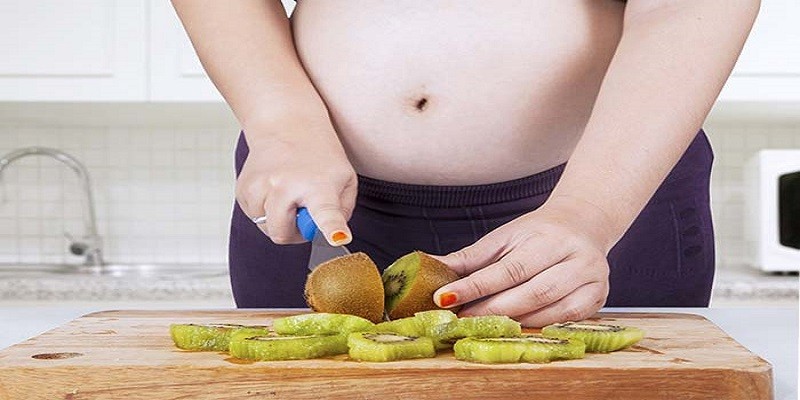Last Updated on May 23, 2024
Yes, you can eat kiwi while pregnant. Kiwi is a safe and nutritious fruit that provides numerous benefits for both the mother and the developing baby during pregnancy.
Pregnancy is a crucial time when a woman’s dietary needs increase significantly to support the growth and development of the baby. Kiwi, a nutrient-dense fruit, can be an excellent addition to a pregnant woman’s diet. It is packed with essential vitamins, minerals, and antioxidants that can help meet the increased nutritional demands during this time.
What is Kiwi?
Kiwi, also known as Chinese gooseberry, is a small, oval-shaped fruit with a fuzzy brown exterior and vibrant green flesh with tiny black seeds. It has a unique, tangy-sweet flavor and a soft, juicy texture. Kiwi is native to China but is now cultivated in many parts of the world, including New Zealand, Italy, and California.
Nutritional Value of Kiwi
Risks of Eating Kiwi During Pregnancy
Safe Ways to Eating Kiwi During Pregnancy
Kiwi can be safely consumed during pregnancy by following a few simple guidelines. Wash the fruit thoroughly before eating to remove any dirt or pesticide residue. Peel the kiwi to avoid potential irritation from the fuzzy skin. Consume kiwi in moderation, as part of a balanced diet, and avoid overconsumption to prevent potential side effects.
Alternatives to Kiwi During Pregnancy
| Alternatives | Precautions |
|---|---|
| Oranges | Avoid overconsumption due to high acidity. |
| Strawberries | Watch for potential allergic reactions. |
| Avocados | Limit intake due to high calorie content. |
| Spinach | Consume in moderation to prevent excessive intake of oxalates. |
Expert Tips
- “Kiwi is an excellent source of vitamin C, which is essential for the proper development of the baby’s bones, teeth, and cartilage.
- Pregnant women should aim to consume at least one serving of kiwi per day to meet their increased folate needs and reduce the risk of neural tube defects.
- If you experience any adverse reactions after eating kiwi, such as itching or swelling, discontinue consumption and consult your healthcare provider.
FAQs
Can I eat kiwi if I have gestational diabetes?
While kiwi has a low glycemic index, it still contains natural sugars. Consult your healthcare provider or a registered dietitian to determine the appropriate portion size and frequency of kiwi consumption if you have gestational diabetes.
Is it safe to eat kiwi during the first trimester?
Yes, kiwi is safe to consume during the first trimester. In fact, its folate content can help prevent neural tube defects in the developing baby.
Can kiwi cause allergic reactions during pregnancy?
Yes, some women may develop an allergy to kiwi during pregnancy, especially if they are already allergic to latex or pollen. Watch for symptoms like itching, swelling, or difficulty breathing.
How many kiwis can I eat per day during pregnancy?
Most experts recommend consuming 1-2 kiwis per day as part of a balanced diet during pregnancy. However, consult your healthcare provider for personalized recommendations based on your individual needs and health status.
Can kiwi help with constipation during pregnancy?
Yes, the fiber content in kiwi can help alleviate constipation, a common issue during pregnancy. However, it’s essential to stay hydrated and incorporate other fiber-rich foods and regular exercise into your routine as well.
Conclusion
Kiwi is a safe and nutritious fruit that can provide numerous benefits for pregnant women and their developing babies. Its rich nutrient profile, including vitamins C, K, and folate, as well as fiber and potassium, can support various aspects of maternal and fetal health. However, it’s essential to consume kiwi in moderation and be mindful of potential allergic reactions or mouth irritation. Consult with a healthcare professional for personalized dietary recommendations during pregnancy.

